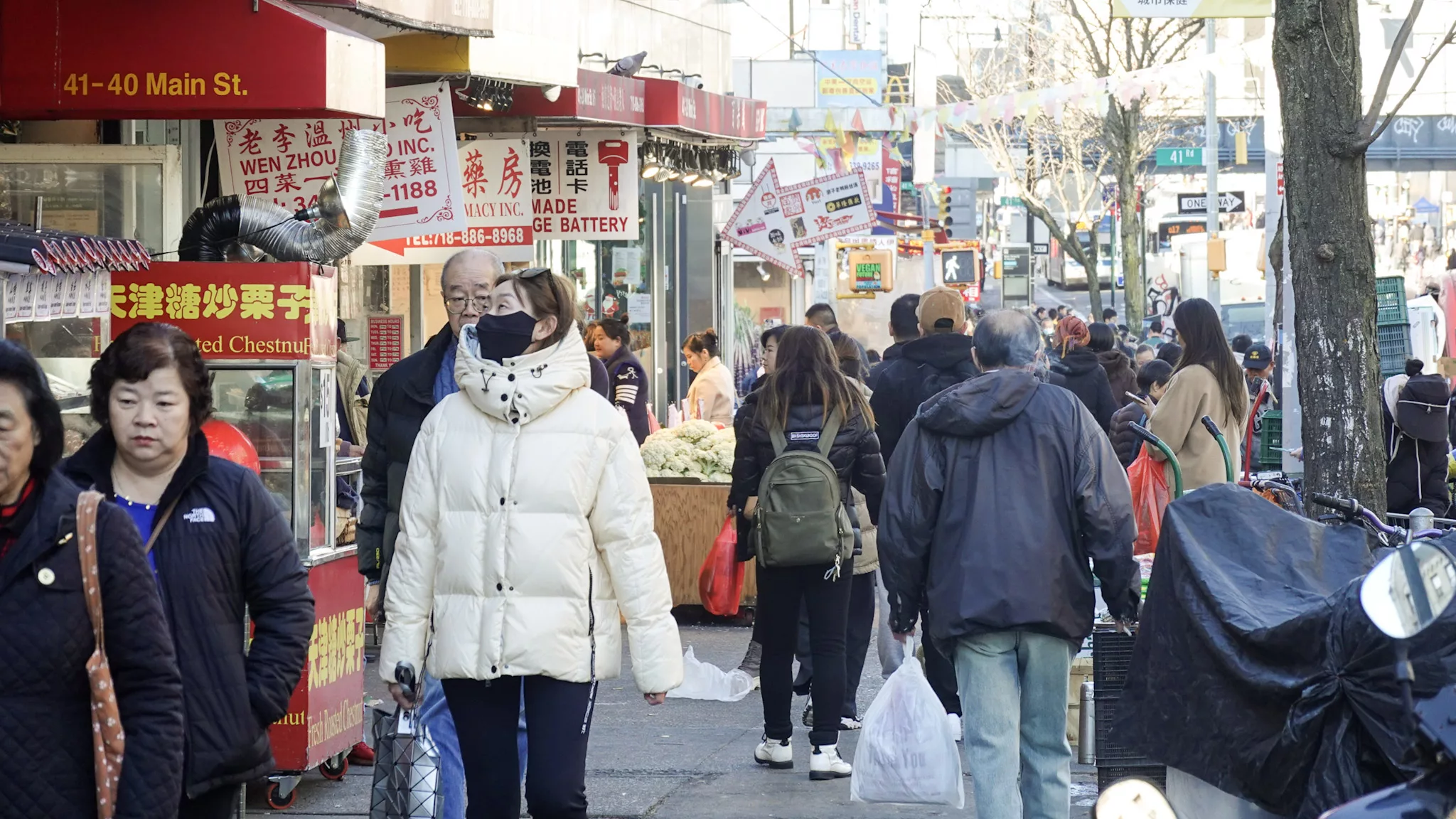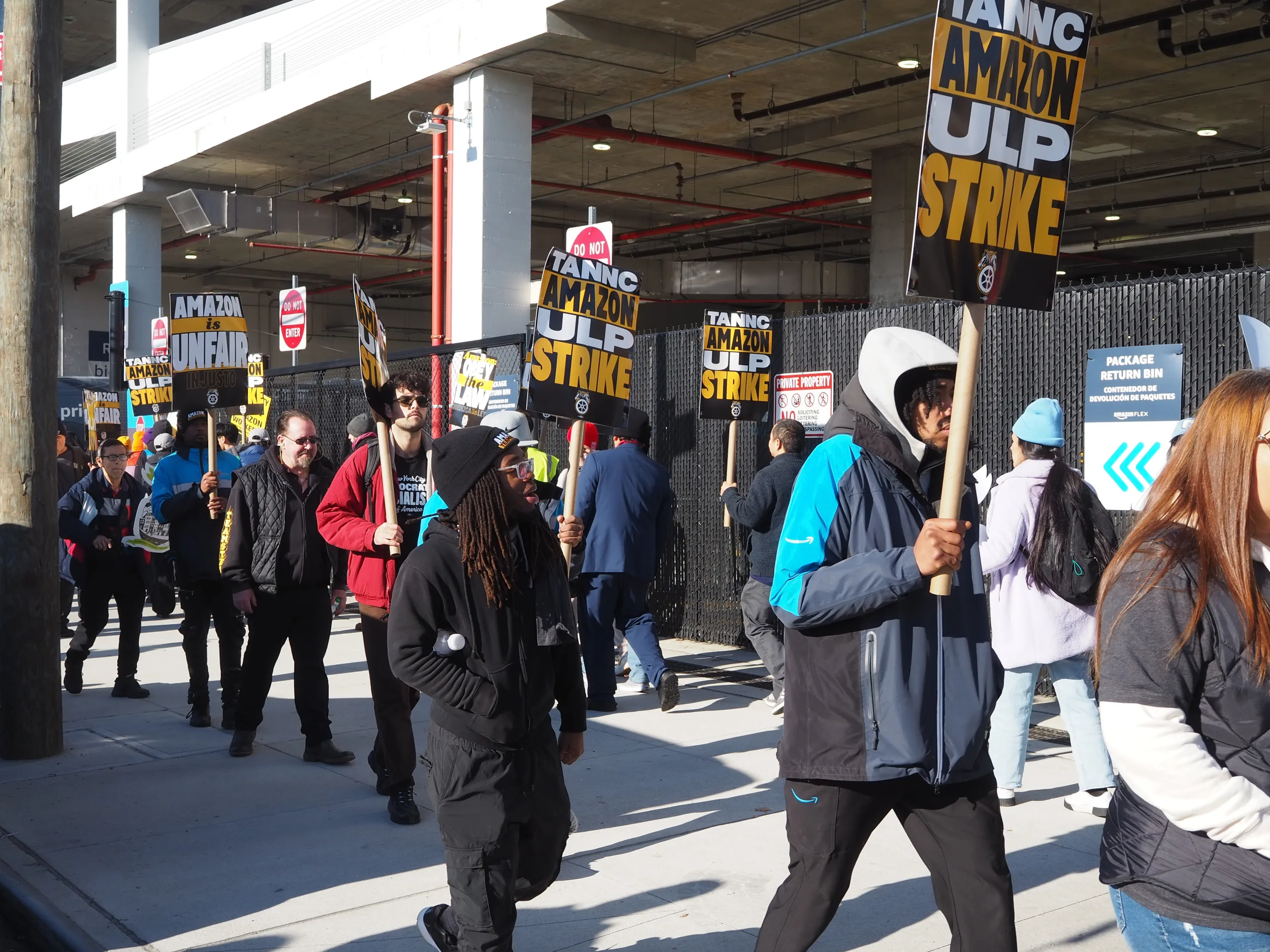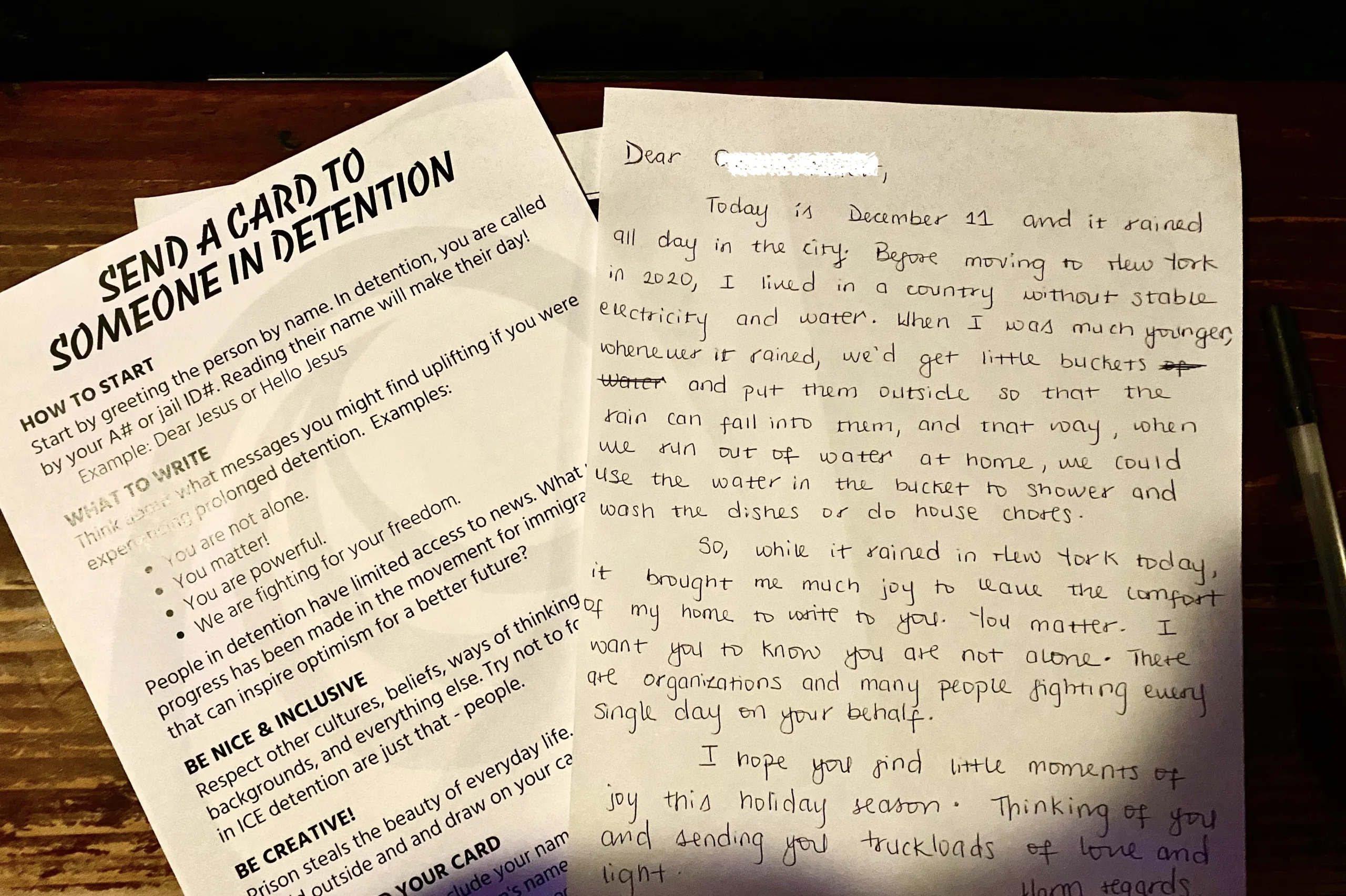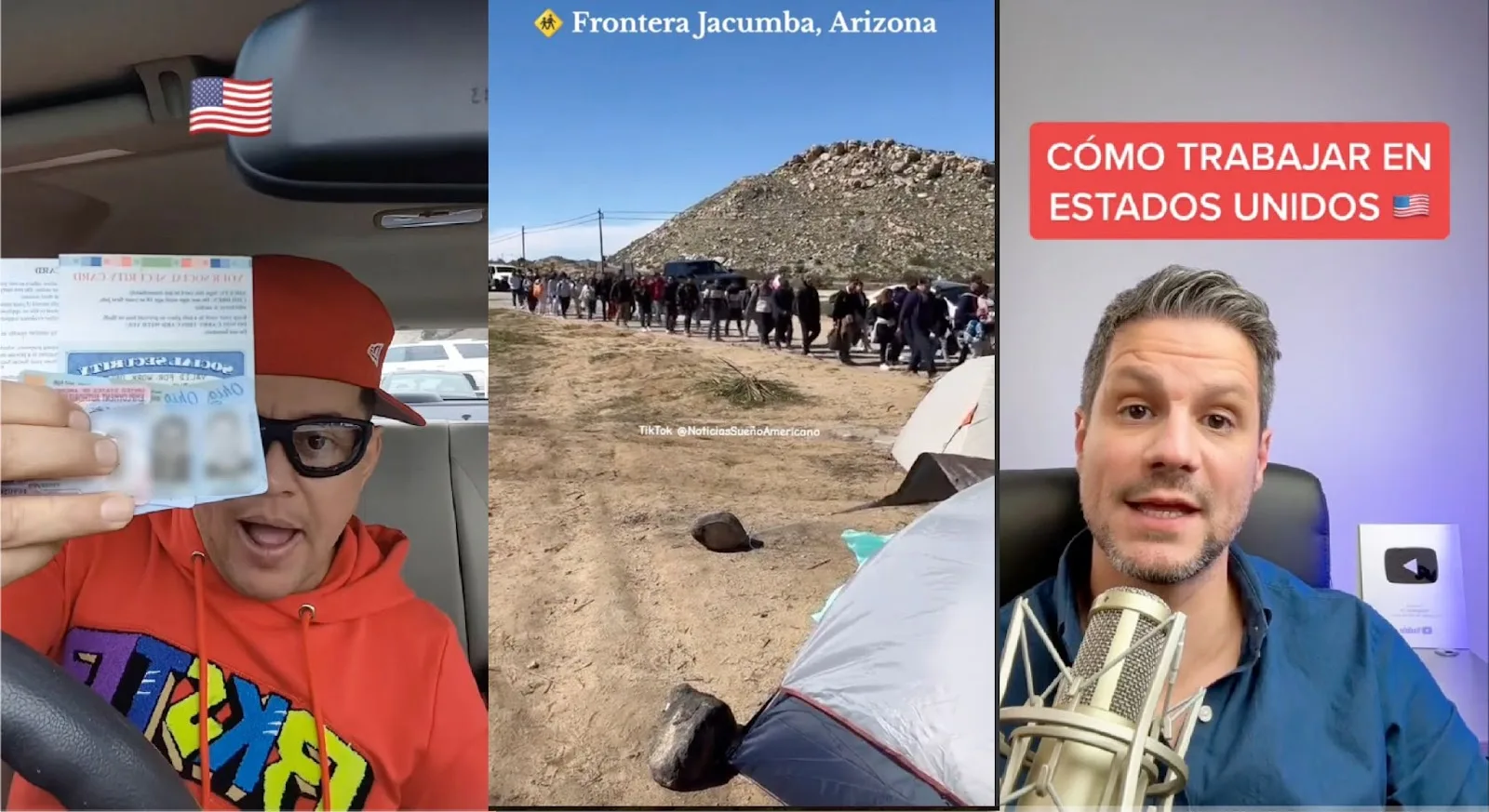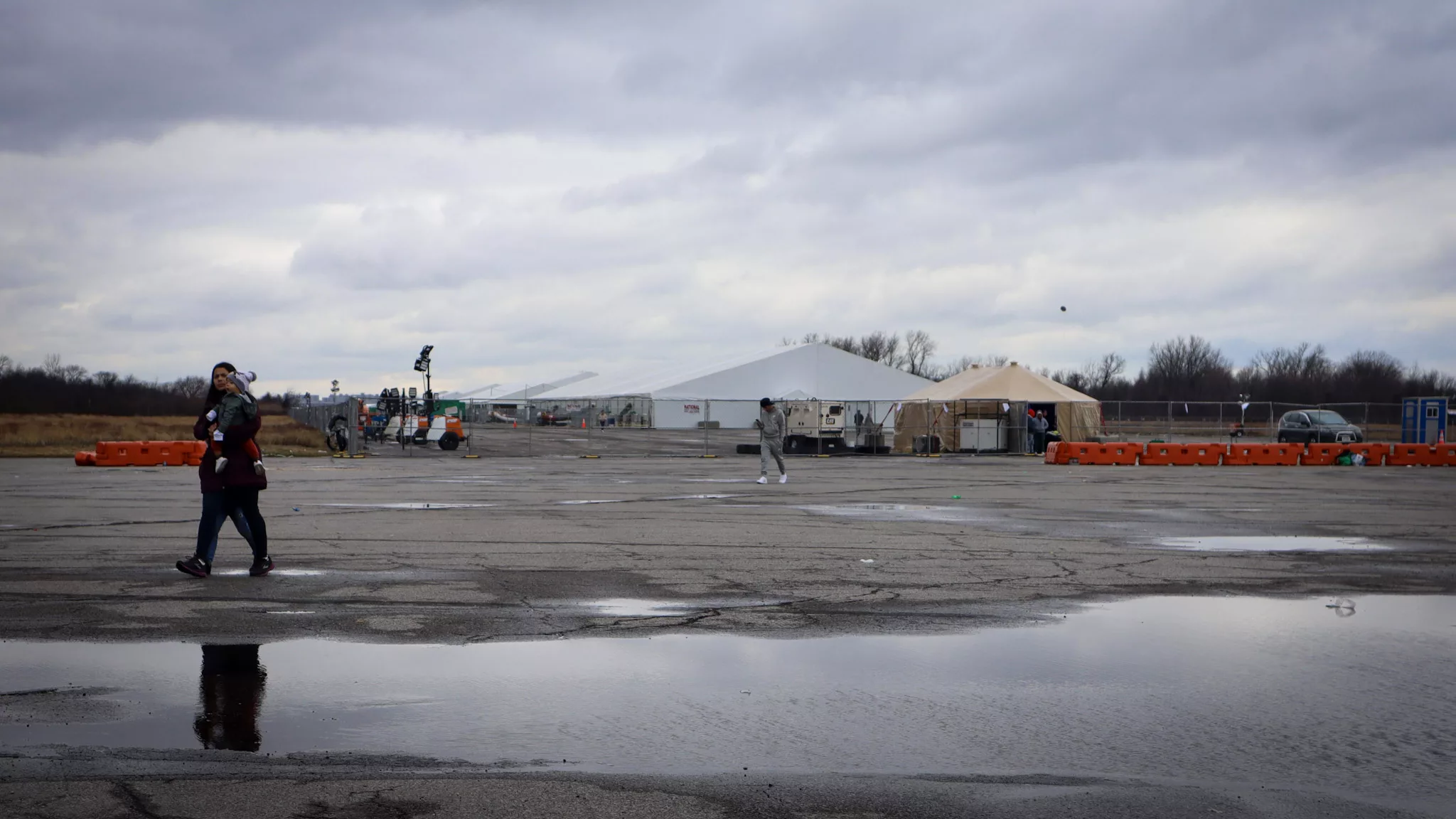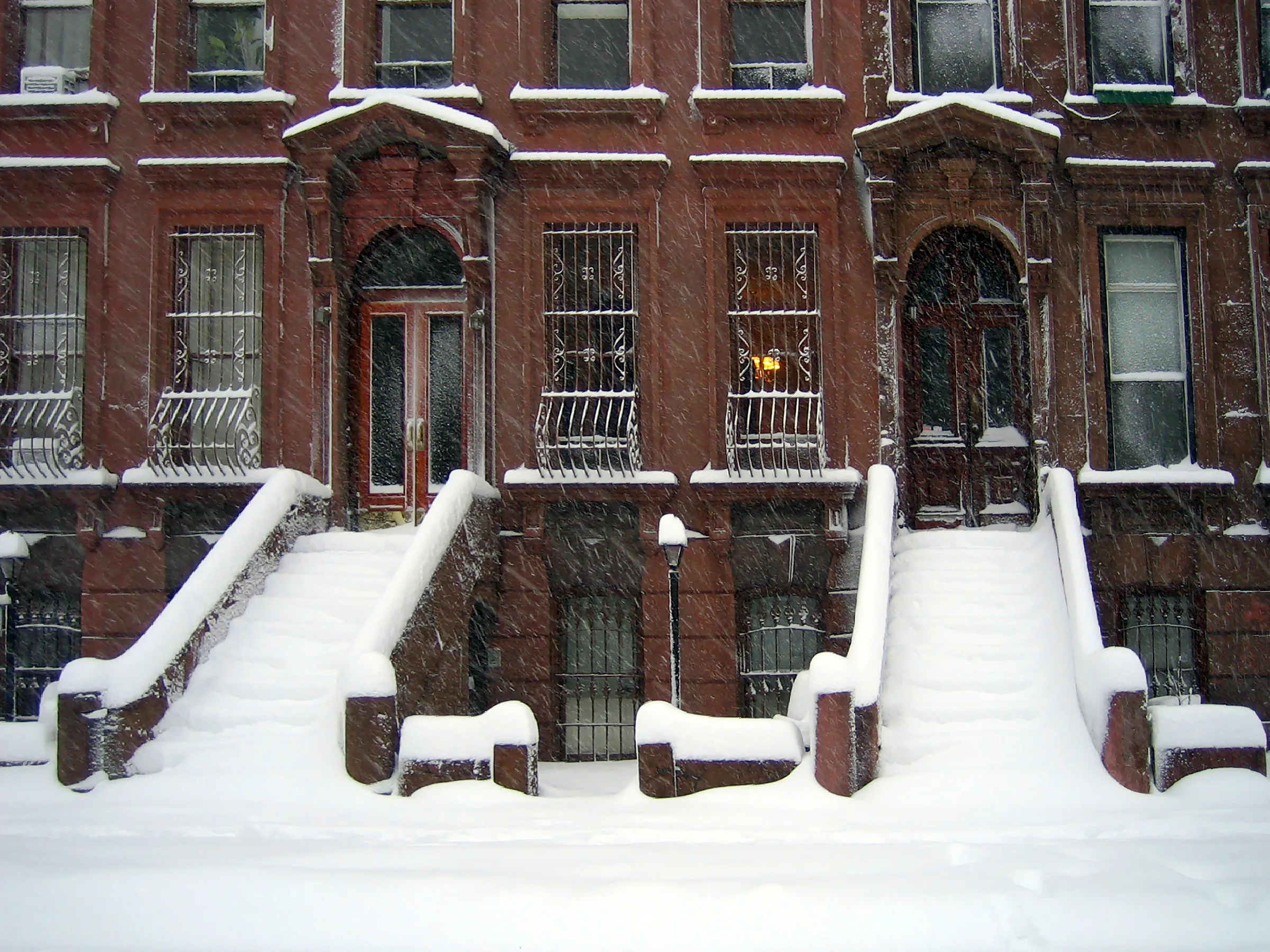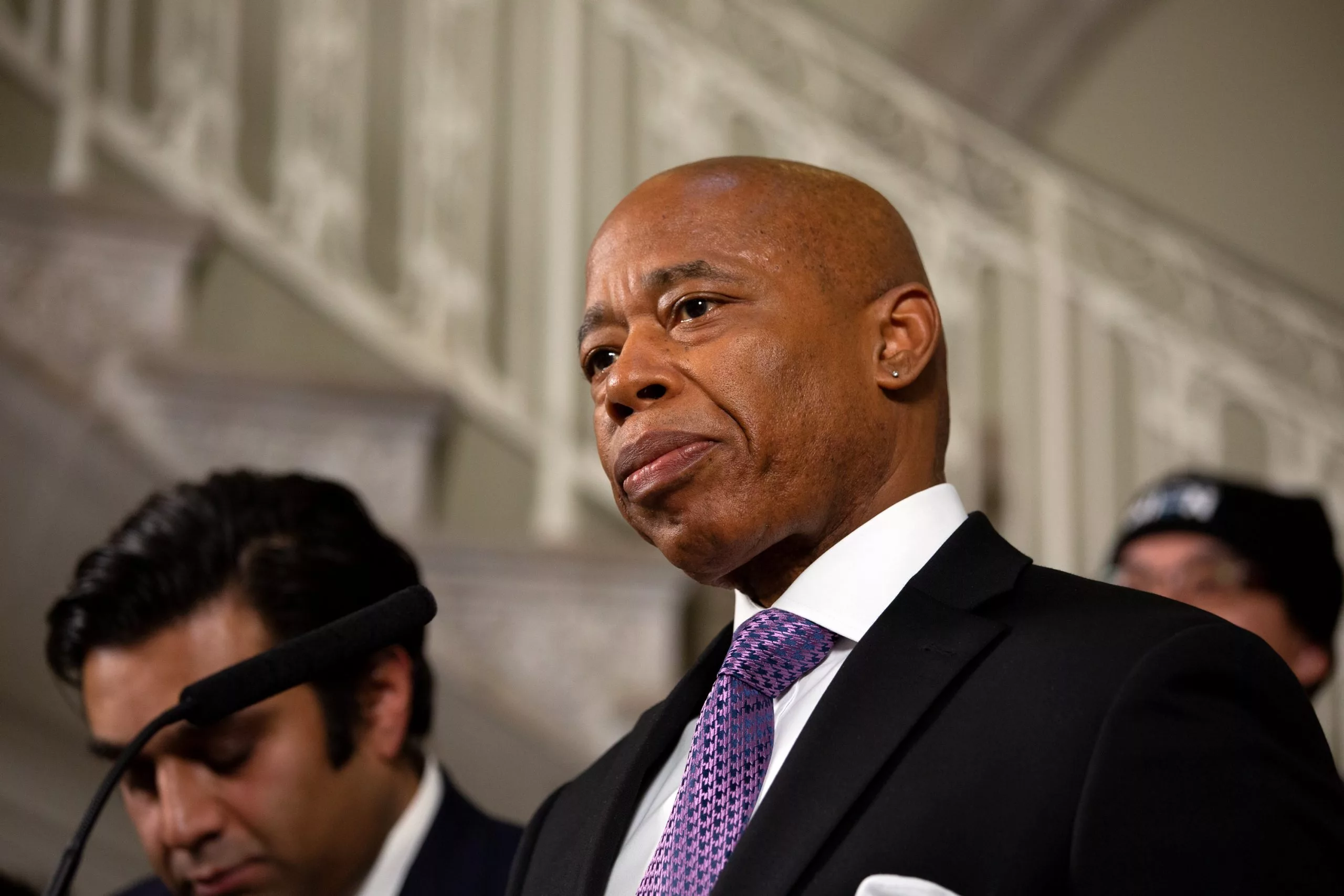In December 2022, when China announced a wide-scale easing of COVID quarantine rules, Herman Huang traveled from the southern Chinese province of Guangdong to Hong Kong, which marked the first leg of his thousand-mile-long journey to the United States.
Huang took multiple flights, stopping in Thailand and Turkey before landing in Ecuador. There, he joined hundreds of Chinese migrants and thousands of Latin Americans to trek north through the dangerous Darién Gap. Chinese migrants often refer to this journey as “zouxian,” meaning “walk the line.”
It took Huang, 41, over a month to cross several Central American countries before he reached the southern U.S. border. When he arrived in Arizona in January last year, he thought he had overcome the most challenging part of his migration. However, he still faced equally formidable challenges. Eager to find a lawyer for his asylum case, Huang paid $2,000 to a Chinese attorney in Los Angeles, who he later discovered was unlicensed. The lawyer claimed that he could assist him in easily obtaining a work permit, but he became unresponsive after receiving Huang’s payment.
Also Read: Organizations Serving Chinese Immigrants in New York
The $2,000 meant a lot to Huang, who didn’t have a job. He was still recovering from his previous leg injury sustained during his escape from Mexico police, who demanded money from him by threatening deportation. To find a more accommodating living environment and job opportunities, Huang traveled to New York City last June where he joined thousands of others like him.
Huang is part of the recent surge of Chinese migrants entering the U.S. through the southern border. According to the latest data from U.S. Customs and Border Protection, the number of Chinese individuals arrested by the U.S. Border Patrol for illegally crossing the border from Mexico has increased by over 5,000% in the past two years, from 450 arrests in fiscal year 2021 to 24,314 in fiscal year 2023.
Yet several Chinese asylum seekers who recently arrived in New York said finding city services or resources was made more difficult because information was not easily accessible to them in the Chinese language. They did not give their full names, fearing that they would draw attention to their cases.
Speaking in Mandarin, many asylum seekers told Documented that the language barrier was a major constraint for them to take root in the U.S. It has affected all aspects of their lives, such as dealing with immigration status issues, finding housing and searching for jobs.
According to Yanhai Wan, a community activist helping migrants in Flushing and the founder of WYH Consulting LLC, Chinese asylum seekers are experiencing fierce competition for employment, pushing them into low-paid jobs with wages as minimal as about $10 per hour. Instead of using the city’s shelter system, some Chinese asylum seekers are choosing to stay in “family hotels,” unlicensed boarding houses where they sleep in shared rooms. Even there, costs are rising from $20 a night to $30 or more.
After finding a better-paying position at a Chinese restaurant in Manhattan, Huang said he moved from the cramped family hotel room to renting a small space in Brooklyn. When asked why he never considered living in a shelter, Huang responded, “I have no idea there are resources like shelters during my most challenging times. Now my life is more stable. I don’t feel the need to stay in a shelter.”
J. Qian, a Shanghai native who arrived in San Diego in late January 2023 after traversing more than 10 countries, said over the past year, he contacted approximately 15 immigration law firms, discovering that only two offered Chinese translation services. He gathered most of the information by himself and word of mouth. “I don’t know where I can find authorized information issued by the government telling me who the trustworthy immigration lawyers are,” he said.
At 50 years old and with limited English proficiency, Qian acknowledged the immense challenges of daily life brought on by the inability to communicate effectively. He recalled the struggle of undergoing a psychological assessment to be transferred to a Brooklyn shelter managed by the HIV/AIDS Services Administration (HASA).
“I went to the clinic three times just to get my report,” Qian said in frustration. As a newcomer, he said navigating the system remains daunting, and he hasn’t started filing a work permit application for a year after arriving in the U.S.
X. Xiong, a 33-year-old asylum seeker from Wuhan and friend of Qian who resides in Flushing and is currently unemployed, emphasized that conquering language barriers is his foremost priority.
“English is the basic skill we need to have. We started from zero here, and if we want to have a stable life, we need to learn English,” Xiong said. He mentioned that he knew of some Chinese asylum seekers who returned to China after months of challenges, finding it too difficult to survive in the United States due to language barriers and lack of job opportunities.
Because of language barriers and lack of access to language resources from the city, many of the Chinese migrants said they primarily relied on self-help strategies. Qian shared that during his journey and after he arrived in NYC last April, he gathered valuable information from Chinese migrants who had arrived earlier. They formed chat groups on social media, particularly on WeChat, exchanging experiences on finding lawyers, securing employment, and applying for driver’s licenses. Qian discovered the HASA shelter program with the assistance of another Chinese asylum seeker who could speak English.
“I feel a lack of information in Chinese here,” said L. Yang, a mother of two, ages 6 and 12. She and her family arrived in Texas at the end of March 2023 and traveled to NYC by bus, following the footsteps of many Chinese migrants before them. Yang had heard that NYC was more accommodating and migrant-friendly, and Flushing was typically a self-sufficient community for Chinese migrants to settle down.
However, Yang’s optimism waned when she attempted to find an apartment in Flushing. “I called about 30 places in a week, and once the agent or landlord learned I’m a migrant with kids, they just rejected me,” Yang said. Later, she heard a rumor circulating among migrants, suggesting that she got rejected because many landlords feared the challenges of evicting tenants who failed to pay rent, particularly with the protective laws in NYC that safeguard families like Yang’s.
With a rising influx of Chinese migrants into communities like Flushing, the neighborhood appears to be struggling to accommodate the growing number of newcomers.
Some Chinese migrants who cannot speak English said they felt trapped in the dark corner of the Chinese community. “I feel as someone new here without legal immigration status, we are always the ones who got exploited and we have no choice but to bear it,” said Huang, referring to the common wage theft among immigrant workers.
Wan highlighted that due to the language barrier, Chinese migrants often depend on information obtained from Chinese sources, which can be rife with misinformation. “Many of them have fallen prey to fake lawyers or untrustworthy agents and become victims of scams because they don’t have enough knowledge about rules or laws here,” Wan explained.
Despite New York City allocating billions of dollars to address the influx of asylum seekers, Wan believed more funding should be directed toward Chinese community organizations that would significantly enhance support for Chinese asylum seekers. He referred to the city’s announcement of a new public-private partnership to aid community-based organizations assisting asylum seekers and communities last March. In the $2.2 million funding allocation, only $30,000 was designated for the Flushing-based community organization, MinKwon Center for Community Action, Inc.
Wan noted that, currently, there isn’t a prominent organization within the Chinese community exclusively dedicated to assisting recently arrived Chinese asylum seekers. “Immigration status and housing are the primary challenges they need to address,” he said.
Rev. Mike Chan, the executive director of Ministries-NY of the Chinese Christian Herald Crusades, Inc., said their organization has experienced the challenges of the influx firsthand. “We tried to grab as many resources, rally the community, and work with government agencies and community-based organizations to help [migrants] out,” he said. The Chinese Christian Herald Crusades, Inc. is a faith-based non-profit organization serving the Chinese community and Chinese immigrants, including the Chinese asylum seekers who arrived in NYC recently.
Chan acknowledged the dilemma facing New York City. “It’s not that New York didn’t want to help migrants,” he said. “But simply, it’s not feasible because they lack the federal funding, the city resources completely drain it. And budget cuts affect the level of services.”
Chan added that with the awareness of a significant shortage in funding available from the mayor’s office and their commitment to serving a larger population, he needs to find ways to identify suitable sources of service deliveries.
Starting this January, Chinese Christian Herald Crusades, Inc. plans to host a monthly event from January to April, collaborating with city agencies and community organizations to provide essential services such as legal assistance and IDNYC applications tailored to migrants’ needs.
According to Chan, their event in January drew about 100 Chinese asylum seekers. He said the service in Chinese is essential for them, “Imagine if you go to another country and you don’t speak a word of that country’s language. Then you have no social network, and the food is different. Everything is different, you know, it’s hard to survive.”
In response to Documented’s inquiry about funding for Chinese community organizations assisting asylum seekers and language access, Shaina Coronel, Director of Communications at the Mayor’s Office of Immigrant Affairs, shared a statement in an email that the city invested $5 million to expand community capacity to provide immigration legal assistance for newly arrived asylum seekers. MOIA has Immigrant Legal Support Centers at Minkwon, Chinese-American Planning Council, and Korean Community Services. These centers serve all Asian communities and have Mandarin/Chinese speakers on staff.
According to NYC Health + Hospitals, over 90% of staff at NYC Health + Hospitals’ 16 humanitarian centers are bilingual, the majority of whom speak Spanish. There are HERRC staff who also speak Mandarin, Cantonese and other languages. For guests who speak a language or dialect not spoken by on-site staff, staff have access to LanguageLine.
In early 2023, in partnership with the Department of Youth & Community Development, H+H also established English for Speakers of Other Languages classes that meet weekly at six humanitarian centers, providing English language education for 600 to 800 adult asylum seekers at any given time, according to a spokesperson for NYC Health + Hospitals.
As of the publication of this article, the Mayor’s office and the Department of Social Services did not respond to Documented’s request for information on the translation services provided to Chinese asylum seekers in NYC, nor about the number of Chinese asylum seekers who recently arrived in New York.
The experience of being scammed and losing $2,000 due to the unlicensed immigration lawyer during his most desperate time continues to haunt Huang. “I feel like every step for us here could be a trap,” he said.
Despite the frustration, he hasn’t considered reclaiming the money, “I don’t know how to file a complaint or protect my rights and I don’t know if the unlicensed lawyer would do anything harmful to my immigration status if I reported him. I’m working six days a week, I don’t have the energy for it.”
For more information about immigration resources, contact the NYC Immigration Legal Hotline at 1-800-354-0365 for assistance. MOIA has various partners with staff who speak Chinese and Mandarin and have access to LanguageLine, a virtual interpretation service that provides immediate, human translation for over 200 languages and dialects. Documented has also compiled a list of free English classes for Chinese New Yorkers.
